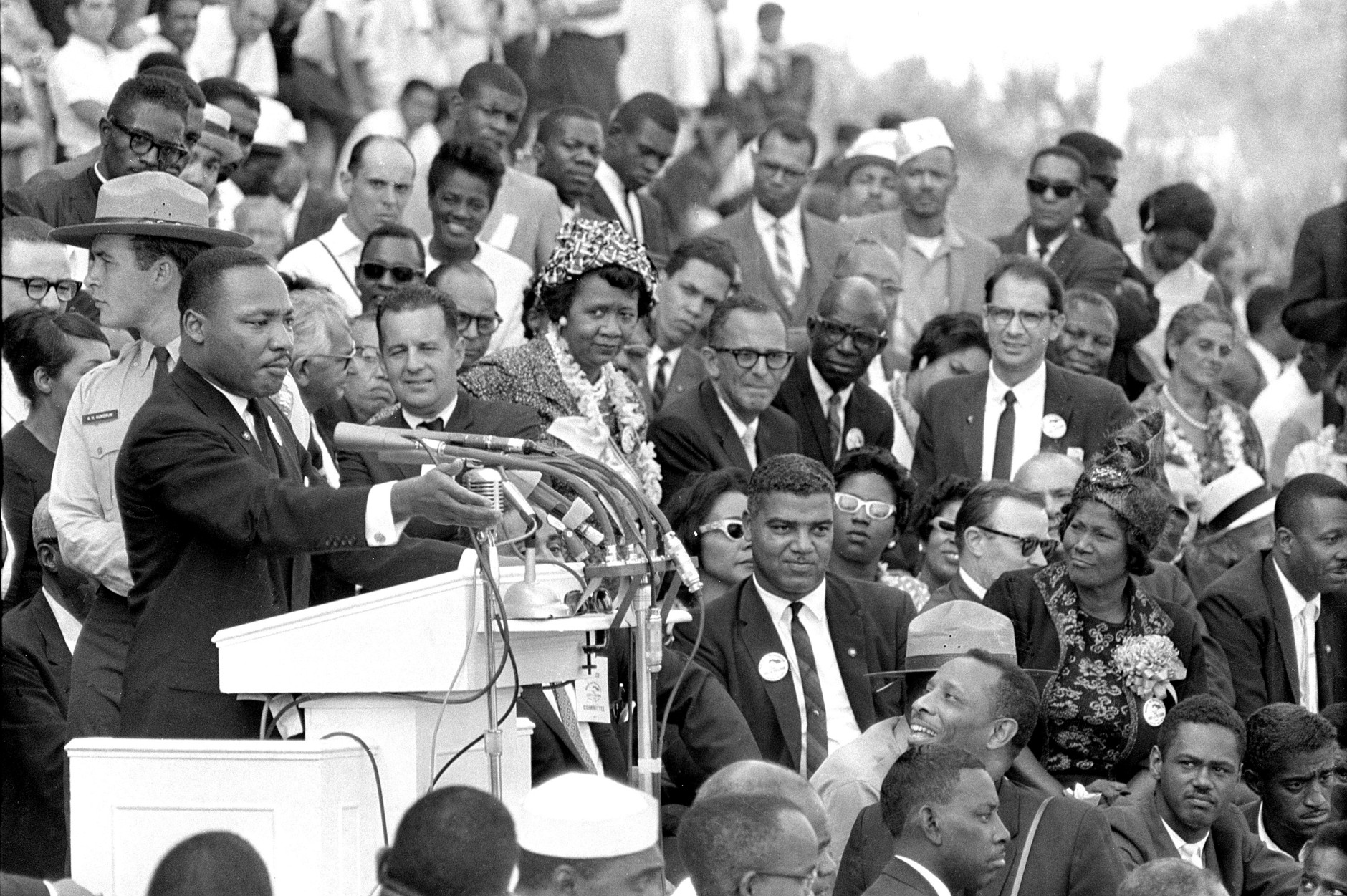

“In terms of content, the most telling section of the speech was not its ‘Dream’ but an earlier passage which detailed the real reason that lay behind the gathering at the March on Washington: that black Americans had been given a “bad cheque” at the time of their purported Emancipation 100 years previously, which they were now coming to Washington to demand to be cashed.

“In terms of oratorical style it was curiously subdued, lacking the signal changes of timbre and pace that characterised the southern Baptist tradition of which King was a part. For many of the strategists who were close to King and activists who were present, this was not even the greatest speech at the March on Washington, let alone of King’s career. Paul’s Cathedral, encouraging black and white Britons to help transform an American struggle for civil rights into a global movement for human equality.”Ĭlive Webb is a professor of Modern American History at the University of Sussex “The most telling section of the speech was not its ‘Dream’ but that black Americans had been given a ‘bad cheque'” “Little more than a year later, King would preach to an audience that filled the aisles at St. “While his focus was on his own country, King’s dream of racial reconciliation and harmony had a transcendent appeal to Britons shaken in recent years by race riots of their own. A British press moved by the cadence and content of King’s oration pointed out that it should not only stir the United States Congress but also Parliament to enact legislation promoting racial equality. “The speech had an influential impact on public debate about race in Britain. Performing what one British newspaper described as ‘its most dramatically historic duty so far,’ a Telstar communications satellite allowed audiences in this country to witness the march, although only the end live.

“King’s speech resonated not only throughout the United States but also across the world. “While many commentators observe that the March on Washington had a negligible impact on the eventual passage of the Civil Rights Act of 1964, none deny the importance of the event in awakening the national consciousness. “King’s inclusive vision of a country united across its racial and religious divide emphasised the idealism and determination of a civil rights movement that had over a decade of struggle developed an unstoppable political and moral momentum.

described his dream of a United States that a century later finally fulfilled the promise of President Abraham Lincoln’s Emancipation Proclamation. “Almost singing the words in his soaring baritone, Dr Martin Luther King, Jr. “On 28th August 1963, a quarter of a million demonstrators, black and white, converged on the capital of the United States to participate in the March on Washington for Jobs and Freedom. “That those tensions could exist simultaneously is the real message behind King’s speech and where the civil rights movement stood in 1963.”īenjamin Houston is a lecturer in 20th century US history at Newcastle University “King’s speech resonated not only throughout the United States but across the world” “Yet he never lost some element of hope, despite all the reasons for pessimism, that America might yet fulfill its fullest promise. “It foreshadowed King’s deepening critique of the wider structures of America that would dominate his thought and the social and political conflicts of the 1960s. “Even his soaring oratory at the March on Washington spoke of cashing a cheque, of laying claim to the economic aspirations that remained largely out of reach to African Americans. “What this anniversary and the canonization of King’s speech should not obscure is the import of that new message as harkening King’s later evolution as a political radical. “He meant to give ‘new meaning’, as he said in the speech, to old words and clichés that nonetheless were rooted in broader notions of the American Dream. “The speech crystallises some of King’s greatest gifts, not the least of which an ability to address diverse constituencies with one voice – to both revive the souls of the march participants and to stir the consciences of the greater public beyond, to speak eloquently to the African American experience and yet also the wider American spirit simultaneously. It certainly should be classed as among a handful of epochal speeches in US history, perhaps second only to the Gettysburg Address. “Calling King’s address ‘the greatest in history’ is a tall order, for any historian to judge and any speech to live up to.


 0 kommentar(er)
0 kommentar(er)
